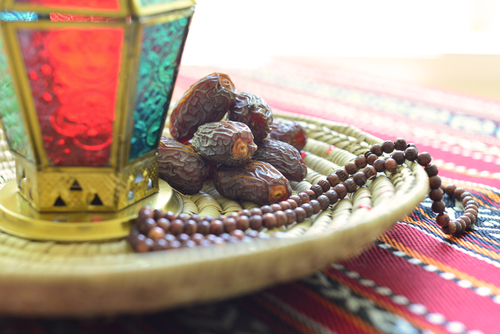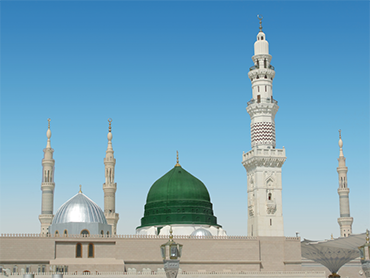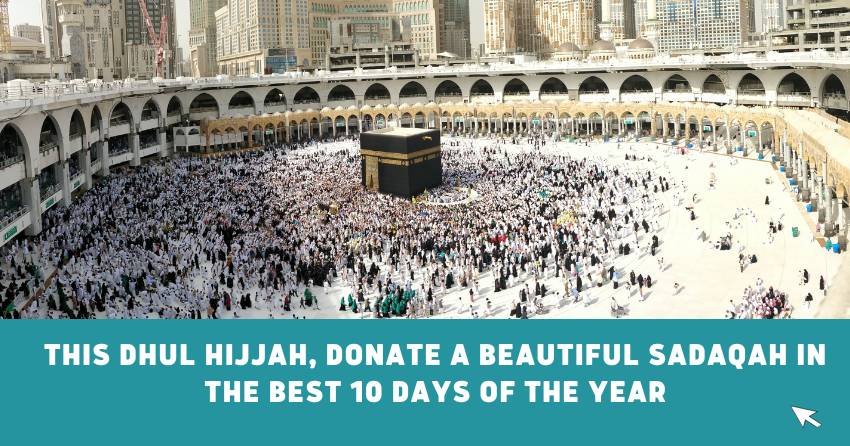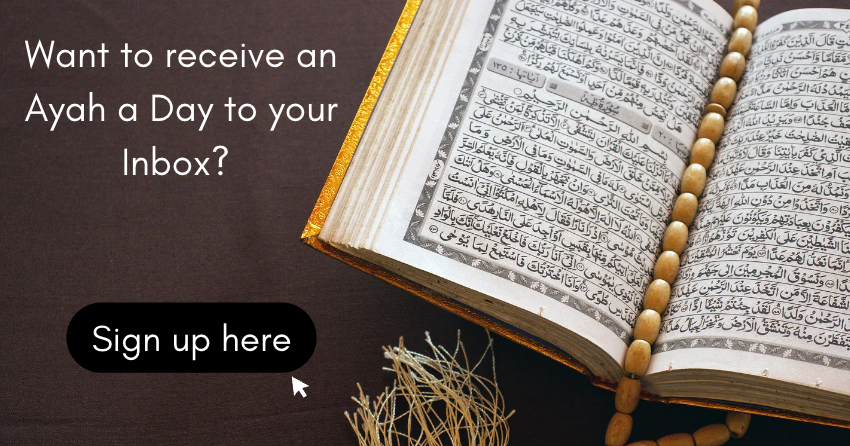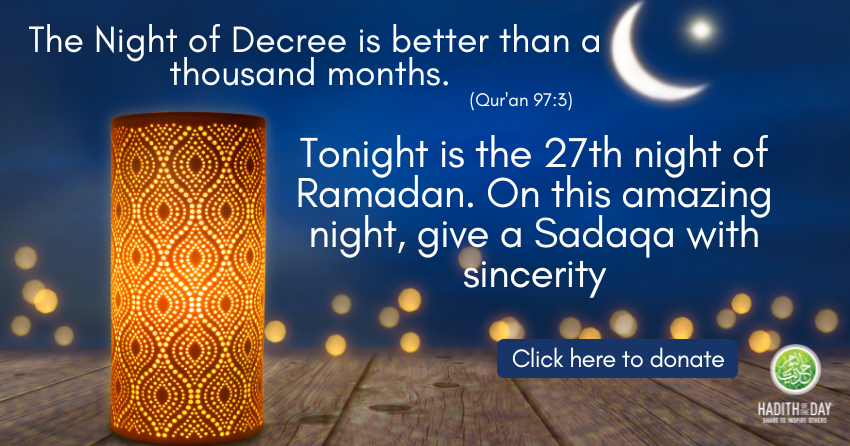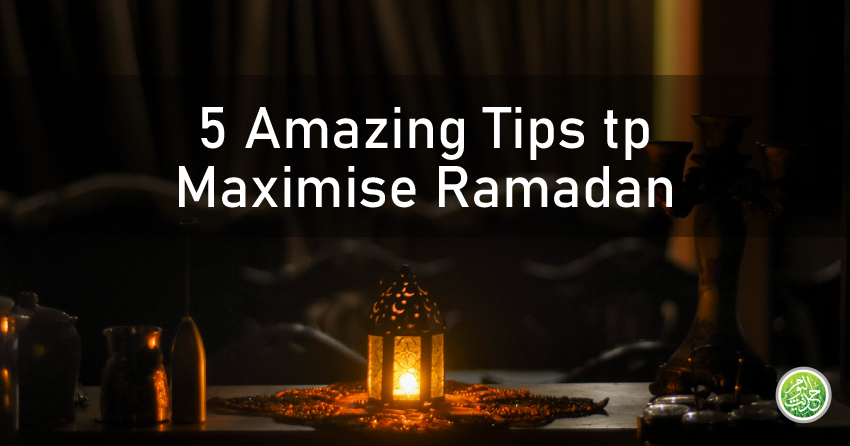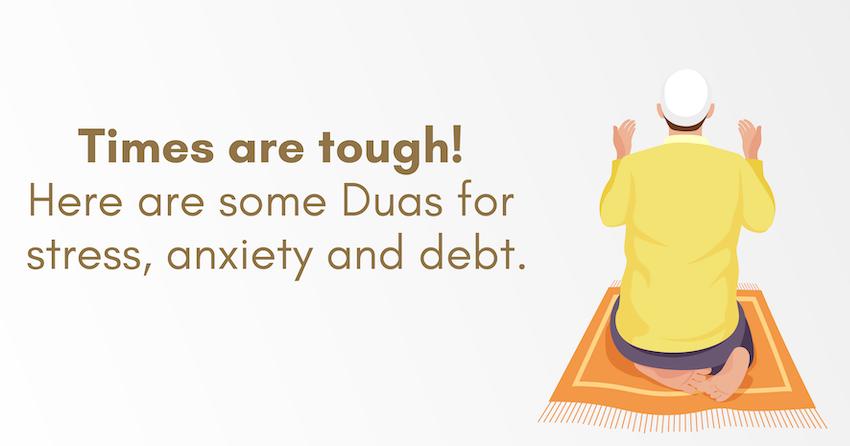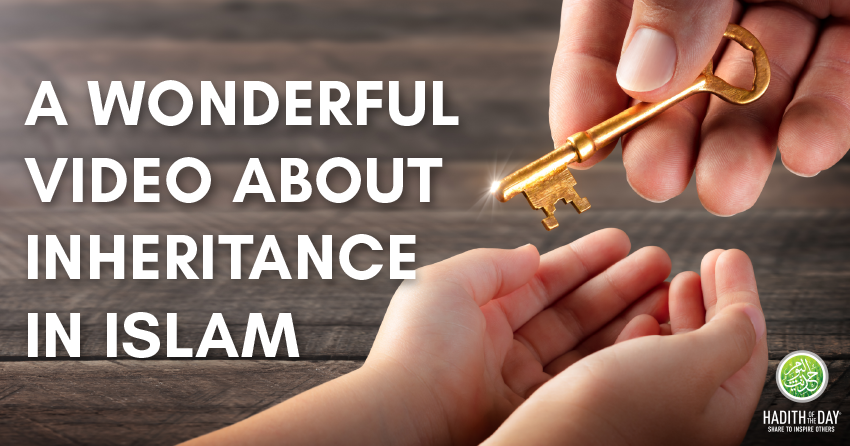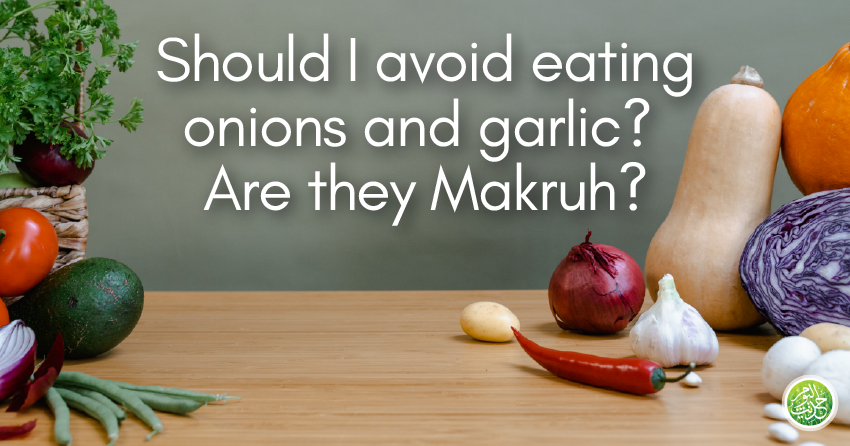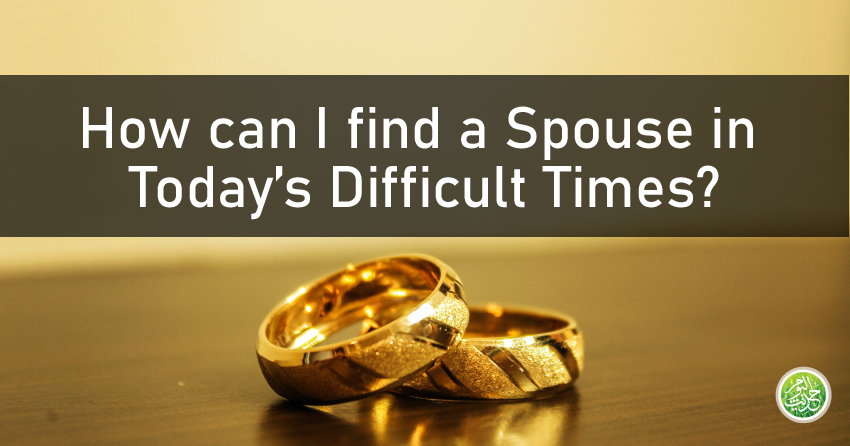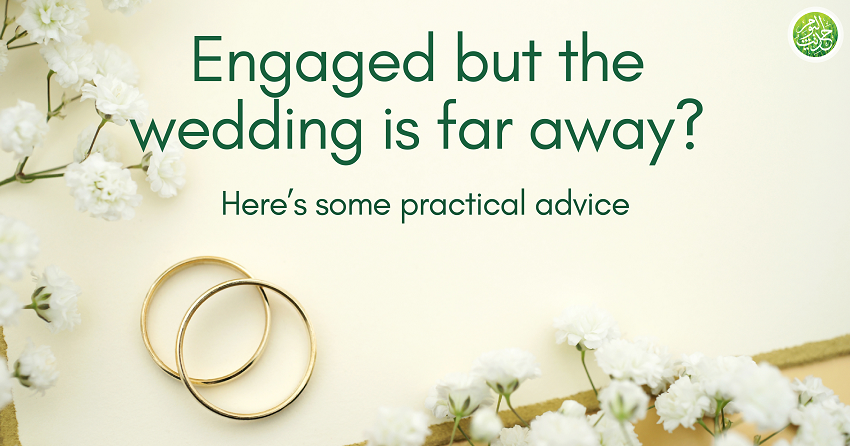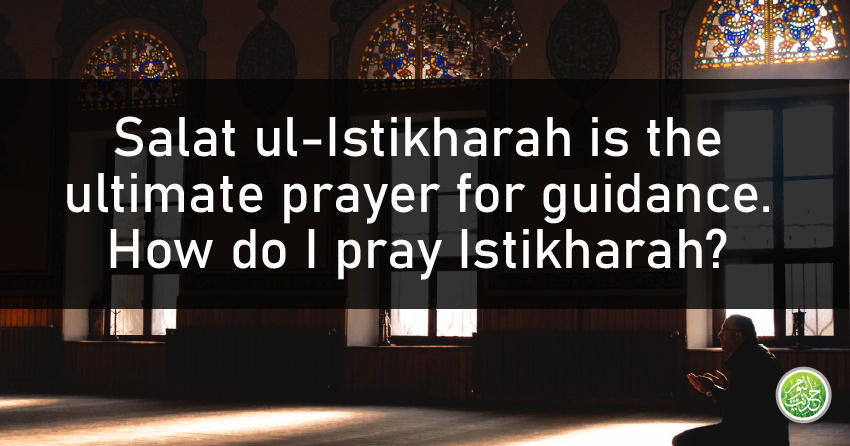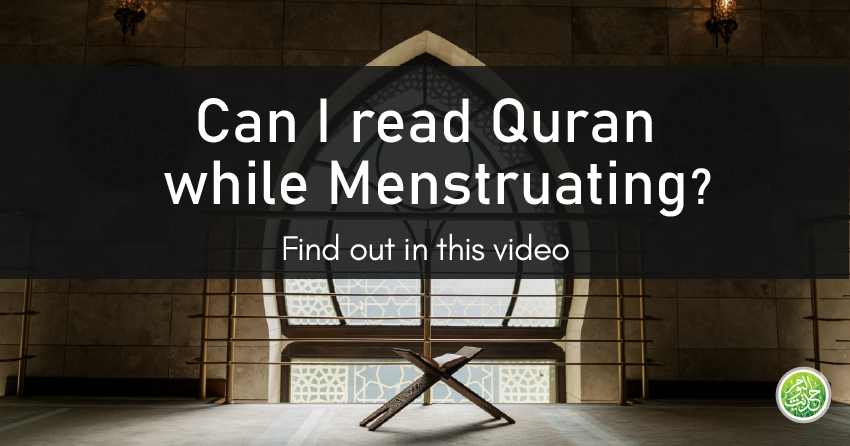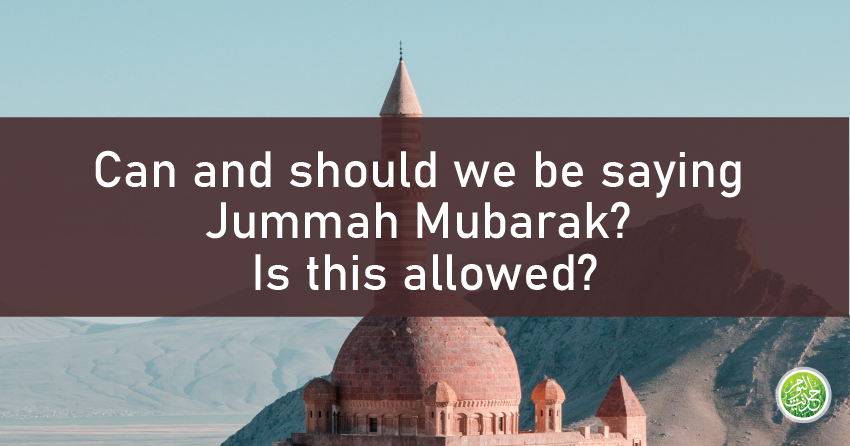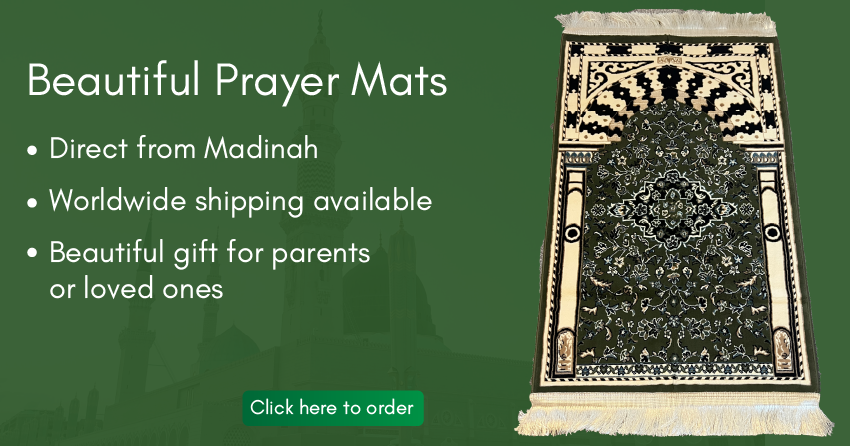Sa’id ibn Aamir al-Jumahi (RA)

Preface: This is only a summary of the life of Sa’id ibn Aamir al-Jumahi (RA) and does not cover all the points of his life story. It is not intended to be a biography, but rather a glimpse of the main incidents of his life so that we can get an idea of his character. For ease of reading, we have not inserted “May Allah be pleased with him (RA)” each time his name or the name of each Companion is mentioned, but please take it that the salutations apply to all of them, may Allah be pleased with them all.
Does any of us know this man or have any of us ever heard his name before? Most probably, the majority of us, if not all, have not heard his name mentioned before. I imagine that you wonder, who is Sa’id Ibn Aamir? Well, you are about to embark on a journey back in time so as to find out all that there is to be known about this ‘happy’ (Sa’id means ‘happy’) man, so fasten your seat belts.
In short, Sa’id was one of the outstanding Companions of the Prophet SAW, notwithstanding the fact that his name was seldom, if ever, mentioned. He was one of the most distinguished unknown pious Companions. It was natural that he, like all Muslims, would accompany the Prophet SAW in all his expeditions and battles, for as a believer, he could not lag or turn his back on Allah’s Prophet SAW in peace or war time. Shortly before the Conquest of Khaibar, Sa’id submitted himself to Islam. Ever since he embraced Islam and gave his allegiance to the Prophet SAW), he consecrated his life, existence, and destiny to the service of Islam. All the great virtues of obedience, asceticism, dignity, humbleness, piety, and pride thrived harmoniously inside this pure and kind man.
In our attempt to unveil his greatness, we must bear in mind that, in most cases, appearance contrasts with reality. If we are to judge him by his outer looks, we will not do him justice, for he was definitely ill-favoured as regards his appearance. He had dusty uncombed hair. Nothing in his looks or appearance distinguished him from poor Muslims. If we are to judge his reality by his appearance, we will see nothing impressive or breath-taking. But if we dive deep into his inner self beyond his outer appearance, we will see greatness in the full meaning of the word. His greatness stood aloof from the splendour and ornament of life. Yet, it lurked there beyond his modest appearance and worn-out garments. Have you ever seen a pearl hidden inside its shell? Well, he was much like this hidden pearl.
When the Commander of the Faithful Umar Al-Khattab dismissed Mu’aawiyah from his position as governor of Homs in Syria, he exerted himself in searching for someone who was qualified to take over his position.
Undoubtedly, Umar’s standards of choice of governors and assistants were highly cautious, meticulous, and scrutinizing. He believed that if a governor committed a sin, error, or violation, two people would be asked to account for it before Allah: Umar and the governor, even if this governor were in the farthest corner of the earth. His standards of estimation and evaluation of governors were highly subtle, alert, and perceiving. Centuries before the advent of Islam, Homs was a big city that witnessed, one after the other, the dawn and eclipse of many civilizations. Besides, it was a vital trade centre. The attractions of the vast city turned it into a place of seduction and temptation. In Umar’s opinion only an ascetic, devout, and repentant worshiper would be able to resist and renounce its attractions.
Umar suddenly realized that Sa’id Ibn Aamir was the man he was looking for and cried out, “Sa’id Ibn Aamir is the right man for this mission.” He summoned him. Sa’id was offered the governorship by the Commander of the Faithful, but he refused saying, “Do not expose me to Fitnah (trials and affliction).” Umar then cried out, “By Allah, I will not let you turn me down. Do you lay the burdens of your trusteeship and the caliphate upon my shoulders, then you refuse to help me out?” Instantly, Sa’id was convinced of the logic of Umar’s words. Indeed, it was not fair to abandon or avoid their obligation towards their trusteeship and towards the caliphate and lay them on Umar’s shoulders. Moreover, if people like Sa’id Ibn Aamir renounced the responsibility of rule, then Umar would definitely have a hard time to find a man who was highly pious and righteous enough to be entrusted with such a mission.
Hence, Sa’id travelled with his wife to Syria. They were newlywed. Ever since his bride was a little girl, she had been an exquisitely blooming beauty. Umar gave him a considerable sum of money at the time of his departure.
When they settled down in Syria, his wife wanted to use this money, so she asked him to buy appropriate garments, upholstery, and furniture, and to save the rest of it. Sa’id said to her, “I have a better idea. We are in a country with profitable trade and brisk markets, so it would be better to give this money to a merchant so as to invest it.” She said, “But if he loses it?” Sa’id said, “I will make him a guarantee that the amount will be paid notwithstanding.” She answered, “All right then.”
Of course, Sa’id went out and bought the necessities for an ascetic life, then gave all his money in voluntary charity in Allah’s cause to the poor and those in need. Time went by, and every now and then his wife would ask him about their money and their profits and he would answer, “It is a highly profitable trade.”
One day, she asked him the same question before one of his relatives who knew what he had done with the money. His relative smiled, then he could not help laughing in a way that made Sa’id’s wife suspicious. Therefore, she prevailed on him to tell her the truth. He told her, “Sa’id on that day gave all his money in voluntary charity in Allah’s cause.” Sa’id’s wife was broken-hearted, for not only had she lost her last chance to buy what she wanted but also lost all their money. Sa’id gazed at her sad, meek eyes glistening with tears that only added more charm and grace to her eyes; yet before he yielded to this fascinating figure, he perceived Paradise inhabited by his late friends and said, “I had companions who preceded me in ascending to Allah and you will not deviate from the path they have taken, not for the world.” He was afraid lest her excelling beauty should make her disobey him; therefore he said as if he were talking to himself, “You know that Paradise is filled with Houris, fair females with wide and lovely eyes as wives for the pious, who are extremely lovely. If one of them had a peep at the earth, she would illuminate it with her light that combines the light of both the earth and the moon. So you should not blame me if I chose to sacrifice your love for their love and not vice versa.” Throughout his talk, he was calm, pleased, and satisfied. His wife was peaceful, for she realized that she had no choice but to follow Sa’id’s example and adopt herself to his rigid, ascetic, and pious way of life.
Homs at that time was called the second Kufa. The reason behind this was that its people were easily stirred and swayed to revolt against their governors. Homs was named after Al-Kufa in Iraq, which was notorious for endless mutiny and uprisings. Although, the people of Homs were given to mutiny, as we have already mentioned, Allah guided their hearts to His righteous slave Sa’id. Thus, they loved and obeyed him.
One day, Umar said to him, “I find it rather strange that the people of Syria love and obey you.” Sa’id answered, “Maybe they love me because I help and sympathize with them.”
Despite the love of the people of Homs for Sa’id, their innate rebellious disposition got the better of them. Hence, sounds of discontent and complaint began to be heard, thus proving that Homs was not called the second Kufa in vain. One day, as the Commander of the Faithful was visiting Homs, he asked its people who gathered around him for their opinion of Sa’id. Some made complaints against him which were blessings in disguise, for they unveiled an impressively great man.
Umar asked the criticizing group to state their complaints one by one. The representative of the group stood up and said, “We have four complaints against Sa’id : First, he doesn’t come out of his house until the sun rises high and the day becomes hot. Second, he does not see anyone at night. Third, there are two days in every month in which he doesn’t leave his house at all. Fourth, he faints every now and then, and this annoys us although he can’t help it.” The man sat down and Umar was silent for a while for he was secretly supplicating Allah saying, “Allah, I know that he is one of Your best slaves. Allah, I beseech You not to make me disappointed in him.” He summoned Sa’id to defend himself. Sa’id replied, “As for their complaint that I do not get out of my house before noon, by Allah I hate to explain the reason that made me do that, but I have to do so. The reason is that my wife does not have a servant, so I knead my dough, wait for it to rise, bake my bread, perform ablution and pray Duha, then I go out of my house.” Umar’s face brightened as he said, “All praises and thanks be to Allah.” Then he urged him to refute the rest of the allegations. Sa’id went on, “As for their complaint that I do not meet anyone at night, by Allah, I hate to say the reason, but you force me to. Anyway, I have devoted the day to them and consecrated the night for Allah. As for the third complaint that they do not see me two days per month, well, I do not have a servant to wash my garment and I have no spare one. Therefore, I wash it and wait for it to dry shortly before sunset, then I go out of my house to meet them. My defence against the last complaint of the fainting fits is that I saw with my own eyes Khubaib Al-Ansaariy being slain in Makkah. The Quraish cut his body into small pieces and said, “Do you want to save yourself and see Muhammad in your place instead?” He answered, “By Allah, I will not accept your offer of setting me free to return to my family safe and sound, even if you gave me all the splendours and ornaments of life in return for exposing the Prophet SAW to the least annoyance, even if it was a prick of a thorn. Now, every time this scene of me standing there as a disbeliever, watching Khubaib being tortured to death and doing nothing to save him flickers in my mind, I find myself shaking with fear of Allah’s punishment and I faint.”
These were Sa’id’s words which left his lips that were already wet from the flow of his pure and pious tears. The overjoyed Umar could not help but cry Out, “All praises and thanks be to Allah Who would not make me disappointed in you!” He hugged Sa’id and kissed his graceful and dignified forehead.
What a great guidance must have been bestowed on those outstanding men! What an excellent instructor Allah’s Prophet SAW must have been! What a penetrating light must have emanated from Allah’s Book! What an inspiring and instructive school Islam must have been! I wonder if the earth can take in so much of the piety and righteousness of those fortunate men. I presume that if that happened, then we would no longer call it the earth but rather Paradise. Indeed the ‘Promised Paradise.’
Since it is not time for Paradise yet, it is only natural that those glorious superior men who pass by life are but few, very few. Sa’id lbn Aamir was definitely one of those superior Muslims.
His position allowed him a considerable salary, yet he took only enough money to buy the necessities for himself and his wife and gave the rest in voluntary charity in the way of Allah. One day, he was urged to spend this surplus on his family and relatives, yet he answered, “Why should I give it to my family and relatives? No, by Allah, I will not sell Allah’s pleasure to seek my kinfolks’ pleasure.”
He was later urged, “Spend more money on yourself and on your family and try to enjoy the lawful good things.” But he always answered, “I will not stay behind the foremost Muslims after I heard the Prophet SAW say, “When Almighty Allah gathers all people on the Day of Reckoning, the poor believers will step forward in solemn procession. They will be asked to stop for reckoning but they will answer confidently: We have nothing to account for. Allah will say: My slaves said the truth. Hence, they will enter Paradise before all other people.”
In A.H. 20, Sa’id met Allah with a pure record, pious heart, and honourable history. He yearned for so long to be among the foremost Muslims; in fact, he consecrated his life to fulfil their covenant and follow in their footsteps. He yearned for so long for his Prophet SAW and instructor and his pure and repentant comrades. He left all the burdens, troubles, and hardships of life behind. He had nothing but his pious, ascetic, awesome, and great inner self. These virtues made the balance of good deeds heavy rather than light. He impressed the world with his qualities rather than with his conceit.
Peace be upon Sa’id lbn Aamir. Peace be upon his life and resurrection. Peace be upon the honourable and obedient Companions of the Prophet and blessings and peace be upon him.
Source: Khalid, Khalid Muhammad, Men Around the Messenger, Islamic Book Service, 2004
Since You’re Here… we have a small favour to ask.
In these extraordinary times, millions rely on HOTD for daily uplifting & inspiring content. Established since 2009 and with your kind support we’ve seen readers elevate their Imaan & strive for better on a daily basis. We’re committed to keeping our content freely available and open for all readers. Every contribution, however big or small, makes a difference and help us spread knowledge to millions daily
HOTD is something special, it’s a place where people can come to be inspired, to renew their faith, to learn and share knowledge, to fall in love with our faith and also our Prophet (peace and blessings be upon him and his family).
All content on HOTD is free. We believe what we do in this life builds for the next one and we work tirelessly with the aim to please Allah and inspire the global Muslim community as
well as providing information and inspiration for anyone interested in Islam. We simply cannot do this without your support and your support helps us continue our services.
If there were ever a time to join us, it is now. You can support HOTD and help sustain our future. Support Hadith of the Day and make a one-off donation or give regularly from as little as £10 a month Jazak’Allah Khayr – whatever you donate will come back to benefit you Insha’Allah as whatever is spent in the way of Allah is an investment in the future and the next life. Thank you.




